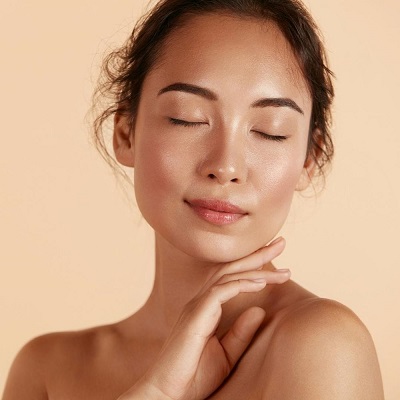Introduction
Post-acne hyperpigmentation (PAH) is a common skin condition characterized by dark spots and discoloration that remain after the healing of acne lesions. While acne affects millions globally, the aftermath can sometimes be more frustrating than the breakouts themselves. In Oman, where the climate can exacerbate skin conditions, understanding PAH and exploring effective remedies and treatments is essential for achieving clear and healthy skin. This article will delve into the causes of post-acne hyperpigmentation, its impact, and the top remedies and Acne Treatment Oman.
Understanding Post-Acne Hyperpigmentation
What is Post-Acne Hyperpigmentation?
Post-acne hyperpigmentation occurs when the skin produces excess melanin in response to inflammation from acne. The result is dark patches that can vary in color from brown to purple, often more pronounced on darker skin types. Unlike acne scars, which are indentations or changes in texture, hyperpigmentation affects only the color of the skin.
Causes of Post-Acne Hyperpigmentation
Several factors contribute to the development of PAH, including:
- Inflammation: The inflammatory response triggered by acne lesions can lead to increased melanin production.
- Skin Type: Individuals with darker skin tones are more prone to hyperpigmentation due to higher melanin levels.
- Sun Exposure: UV radiation can darken existing spots and impede the healing process, making sun protection crucial.
- Picking or Squeezing: Manipulating acne lesions can exacerbate inflammation and increase the risk of hyperpigmentation.
Top Remedies and Treatments for Post-Acne Hyperpigmentation in Oman
1. Topical Treatments
Several over-the-counter and prescription topical treatments can help fade hyperpigmentation.
Hydroquinone
Hydroquinone is a skin-lightening agent that reduces melanin production. It's commonly found in many formulations and is effective for treating hyperpigmented areas. However, it should be used under medical supervision due to potential side effects, including skin irritation.
Retinoids
Topical retinoids, such as tretinoin, promote cell turnover and help reduce pigmentation. They can also improve overall skin texture and prevent new acne from forming. For best results, retinoids should be used consistently and in conjunction with sun protection.
Vitamin C
Vitamin C is a powerful antioxidant that brightens the skin and inhibits melanin production. Many skincare products in Oman feature Vitamin C as a key ingredient, making it a popular choice for tackling hyperpigmentation.
Azelaic Acid
This naturally occurring acid helps to lighten hyperpigmented spots while also providing anti-inflammatory benefits. It's suitable for sensitive skin and can help treat both acne and hyperpigmentation simultaneously.
2. Chemical Peels
Chemical peels involve applying a solution to exfoliate the outer layer of skin, promoting cell turnover and reducing pigmentation. Commonly used acids in chemical peels include glycolic acid, salicylic acid, and lactic acid. A professional treatment can yield significant results, especially for stubborn hyperpigmentation.
3. Laser Treatments
In Oman, various laser treatments are available to treat post-acne hyperpigmentation. These treatments target melanin in the skin, helping to break it down and promote a more even skin tone. Common lasers used include:
- Fractional Laser Resurfacing: This treatment creates micro-injuries in the skin to stimulate collagen production while targeting pigmented areas.
- PicoLaser: A more advanced laser treatment that delivers energy in short bursts, effectively breaking down pigmentation without damaging surrounding skin.
4. Microdermabrasion
Microdermabrasion is a non-invasive procedure that exfoliates the outer layer of skin, helping to improve skin texture and reduce pigmentation. This treatment is effective for minor cases of hyperpigmentation and can be performed in a clinical setting or through at-home devices.
5. Natural Remedies
While scientific treatments are often more effective, some natural remedies may help alleviate hyperpigmentation. However, their efficacy may vary.
Aloe Vera
Known for its soothing properties, aloe vera can help lighten dark spots over time. Applying pure aloe vera gel directly to the affected areas may provide mild improvement.
Green Tea Extract
Rich in antioxidants, green tea can help reduce inflammation and protect the skin from further damage. Using skincare products infused with green tea extract may help improve the appearance of hyperpigmentation.
Lemon Juice
Lemon juice is known for its natural bleaching properties. However, it should be used with caution, as it can cause skin irritation, especially in sunny climates like Oman. Always apply sunscreen after using lemon juice to avoid further discoloration.
Sun Protection: A Crucial Step
Regardless of the treatment chosen, sun protection is paramount in preventing further darkening of hyperpigmented areas. Sunscreens with a high SPF should be applied daily, even on cloudy days. Wearing protective clothing and seeking shade during peak sun hours can also help protect the skin.
Conclusion
Post-acne hyperpigmentation is a common concern that can significantly impact one's confidence and skin health. Understanding its causes and exploring effective remedies and treatments is essential for managing this condition. In Oman, a combination of topical treatments, professional procedures, and diligent sun protection can help individuals achieve clearer, more even-toned skin. While it may take time to see results, consistent care and patience can lead to a significant improvement in the appearance of post-acne hyperpigmentation.





Comments